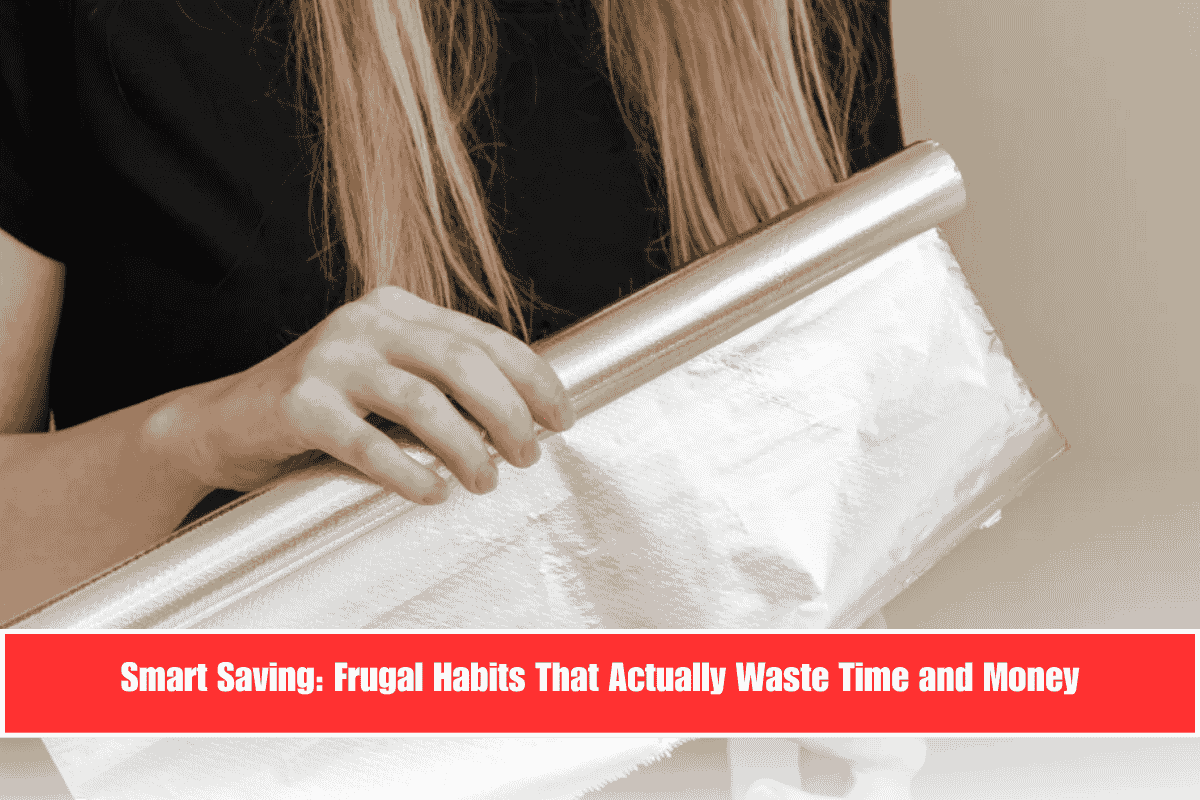Everyone wants to save money, but sometimes trying too hard can backfire. Some frugal habits sound smart but end up wasting your time, energy, and even more money. In this article, we’ll cover common mistakes people make while trying to save and show you better ways to handle your money wisely.
Driving Out of the Way for Cheap Fuel
Driving extra just to find cheaper petrol might save a few rupees, but it wastes your precious time and burns extra fuel. Instead, use apps like GasBuddy to find good deals along your regular route and save without making long detours.
Making DIY Laundry Detergent
Homemade laundry detergent sounds eco-friendly and cheap, but the cost of ingredients like Borax and washing soda adds up. Plus, DIY detergents often don’t clean as well and can even damage washing machines. It’s smarter to buy good-quality detergent on sale.
Cutting Open Toothpaste Tubes and Bottles
Some people cut open tubes to scrape out every bit, but unless it’s expensive cream or skincare, it’s usually not worth the mess. Use a tube squeezer or stick to affordable brands instead.
Growing Veggies You Don’t Eat
Gardening can save money, but only if you grow vegetables and herbs you actually eat. Growing things you don’t like, like kale or eggplant, wastes time, water, and effort. Stick to everyday favorites like mint, tomatoes, and lettuce.
Extreme Couponing for Things You Don’t Need
Extreme couponing sounds like a dream, but if you’re stockpiling products you don’t use, it’s a waste. Be a smart, casual couponer—only use discounts on items you actually need.
Making Everything From Scratch
Homemade bread and pasta are fun once in a while, but trying to DIY everything is exhausting and expensive. Instead, enjoy making one or two things yourself and buy the rest.
Taking Out the Light Bulbs to Save Energy
Unscrewing light bulbs to save electricity is outdated. Modern LED bulbs are already energy-efficient and cost less to run. Instead, invest in good appliances and use natural daylight whenever possible.
Skipping the Dishwasher to Hand-Wash Everything
Washing dishes by hand uses more water than modern ENERGY STAR dishwashers. Fill up your dishwasher and run it fully to save time, water, and energy.
Hoarding Freebies You Don’t Need
Taking free stuff you don’t use leads to clutter and wasted space. Only take freebies that you truly need or will use.
Reusing Single-Use Plastics Too Long
Cheap takeaway containers wear out quickly and can leak harmful chemicals into your food. It’s better to invest in good-quality reusable containers for safety and long-term savings.
Refilling Tiny Travel Bottles Over and Over
Cheap travel bottles crack and leak after a few uses. If you travel often, buy strong reusable containers or stock up on good travel-sized products.
Saving Pennies but Ignoring High-Interest Debt
Saving a few rupees here and there is good, but paying high-interest debts like credit cards should come first. Clearing debts saves far more money in the long run than cutting tiny daily costs.
Buying Cheap Instead of Buying Quality
Buying the cheapest item often leads to quick breakage and repeated purchases. Investing in good quality upfront is actually more economical over time.
Refusing to Use the Air Conditioner
Avoiding the AC during extreme heat can be dangerous. Using the AC smartly—setting a reasonable temperature, using blinds and fans—saves energy while keeping you safe and comfortable.
Refinishing Old Furniture That’s Falling Apart
Not all furniture is worth fixing. If it’s broken or unsafe, don’t waste money on paint and supplies. Buy good secondhand pieces that need minimal work instead.
Skipping Routine Car Maintenance
Skipping oil changes or tire rotations to save money often leads to bigger, more expensive problems. Basic maintenance keeps your car running smoothly and saves you from costly repairs.
Stocking Up on “Deal” Items You’ll Never Use
Buying in bulk is only smart if you’ll actually use the items before they expire. Stick to bulk-buying everyday staples like rice, pasta, and canned goods to avoid waste.
Smart saving isn’t just about cutting costs; it’s about making thoughtful decisions that protect your time, money, and energy. By avoiding these common frugal mistakes and focusing on quality over quantity, you’ll live a simpler, more rewarding life. Make your savings work for you—not against you.


















Leave a Reply